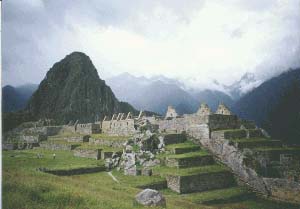|
||||||
|
General Information
Tourist information in Peru
Peru has a Tourist Information and Assistance Service known as i peru, where you can obtain objective and impartial tourist information, as well as assistance, in the event that the services rendered were not provided in the manner they were offered when they were contracted. For further information please click here.
Security
Take normal precautions against pickpockets |
|
|
Carry a copy of identification documents. Keep originals and your valuables in the safety deposit box of your hotel and make sure to list down what you deposit and verify the responsibility assumed by the establishment. Carry valuables discreetly. Do not carry large amounts of cash. Keep an eye on your bags and luggage. Do not carry suitcases, bags or sac packs on your back. Do not exchange money out in the street. Do not walk around late at night through areas with poor lighting or without a companion
Communications
Telephone
International and long distance national calls can be made from public pay phones. Country and city codes are normally shown in the telephone booths. To make an international call, dial: 00 + country code + city code + telephone number. To call from one city to the next, dial: 0 + city code + telephone number. Public phones take coins as well as cards, which are sold in stands and supermarkets. Make sure you are buying the card corresponding to the telephone company of the phone you want to use. No collect calls can be made from pay phones. To obtain telephone information, dial 103 (service is in Spanish)
Internet
The main cities in the country do have public Internet booths. The average cost per hour is US$ 1,3.
Lodging
There are lodging establishments of various types and cost. In the high tourist season (June to September) it is recommended to make advanced reservations. It is also possible to stay over at family homes authorized by the National Tourism Board. Make sure you always know the check out time.
Travel agencies
Travel agencies can facilitate your travel throughout Peru. Hire the services of those accredited with the National Tourism Board, in Lima, and by the pertinent entities in other cities. Compare services and make sure they are clearly specified in the document issued by the company (commonly known as "voucher" or "service coupon"). Demand a receipt of payment; the agency is obliged to issue both documents. Do not hire services offered by individuals appearing in the vicinity of airports and main squares, as this method of selling is prohibited.
Health matters
Only drink bottled or previously boiled water. Be careful with raw vegetables and fruits. Avoid eating from street vendors. Rest on the first day of your arrival to the Highlands, and consume light meals to prevent altitude illness (soroche). Drinking "coca tea" is recommended. If you travel to the Highlands or to the Jungle, make sure to carry insect repellent and a raincoat. To obtain medical services, contact the staff of your hotel or travel agent. If you wish to take travelers' insurance, contact your favorite travel agency.
Banks
Banking hours in Peru are normally from Monday to Friday, from 9 a.m. to 6 p.m. In addition, most banks open for the public half day on Saturdays. In the streets of the main cities there are teller machines installed by the different banks.
Money exchange
EIt is recommended that money should be exchanged in hotels, banks and authorized money exchange offices (Service hours: 9:30 a.m. to 6 p.m., approximately). The exchange rate against the US Dollar is variable. Inquire before changing your money. For exchanging other currencies inquiry at money exchange offices
Night life
Most of the cities of Peru have a wide variety of night life entertainment. Information about places of interest can be obtained where you are staying. If you wish to enjoy typical Peruvian music, you can visit the so-called "peñas".
In Lima, the most popular discotheques, pubs and night clubs are in the Districts of Miraflores, San Isidro and Barranco. In other cities they are normally found in city centers (main square and vicinity).
Food and beverage
Peruvian cuisine offers a great variety of dishes typical of the Coast, the Highlands and the Jungle. Always first ask about their ingredients, since some dishes can contain hot pepper or be highly spiced. You will also find establishments where international food is prepared.
As far as drinks are concerned, try the very Peruvian Pisco (grape brandy) in any of its various recipes, as well as "chicha morada" (purple corn juice) "chicha de jora" (fermented red or yellow corn juice)and agüaje juice, made from a tropical Jungle fruit.
Tipping
The amount of the tip in Peru varies with the degree of satisfaction you have with the service provided. |
|

